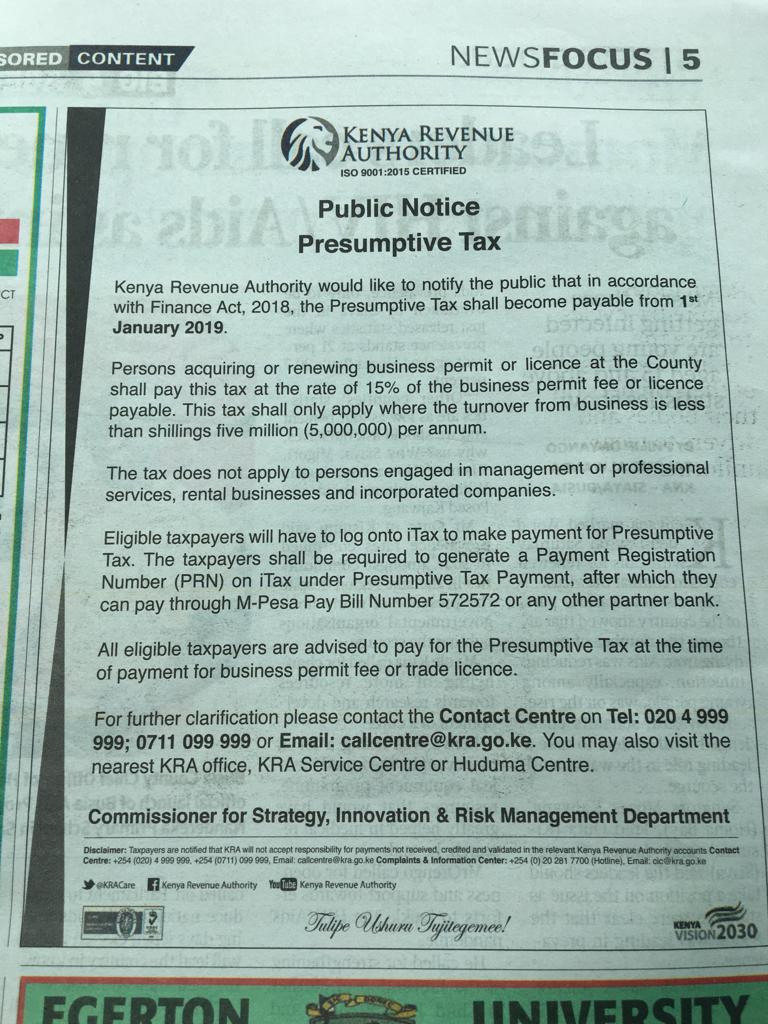Presumptive Tax: The Jubilee government is not yet done with taxing Kenyans. Now, millions of small Kenyans will have to pay a newly introduced tax starting January 1 2019.
The new tax, dubbed as Presumptive Tax, will have to be paid before any Kenyan can apply for a small business permit at the county level. This means that millions of Kenyans who run vibanda kiosks will be affected.
KRA says that the informal traders will be required to log onto its iTax platform and pay the presumptive tax before county governments can renew their business permits.
“…In accordance with Finance Act, 2018, the presumptive tax shall become payable from January 1, 2019. All eligible taxpayers are advised to pay for the presumptive tax at the time of payment for business permit fee or trade licence,” said the KRA in a notice published in the local dailies.
“Persons acquiring or renewing business permit or licence at the county shall pay this tax at the rate of 15 per cent of the business permit fee or licence payable… The taxpayers shall be required to generate a payment registration number on iTax after which they can pay through M-Pesa Pay Bill number 572572 or any other partner bank.”
National Treasury Cabinet Secretary Henry Rotich changed the law to have informal traders recording revenue of below Sh. 5 million pay the presumptive tax at the rate of 15 per cent of the single business permit fee issued by a county government when renewing their permits.
President Uhuru Kenyatta last September signed into law the Finance Bill 2018, which introduced a number of new taxes and levies aimed at growing the revenue base and reducing the budget deficit as demanded by the International Monetary Fund.
About 2.2 million small enterprises have closed shop in the past five years, according to a 2016 government report, underlining the tough challenges that the local business climate poses for small traders.
The Kenya National Bureau of Statistics (KNBS) report titled Micro, Small and Medium Establishments, says most of the businesses that shut down had blamed shortage of operating funds, increased operating expenses, and declining income for the collapse.









